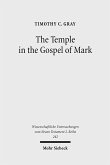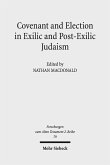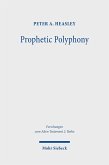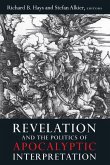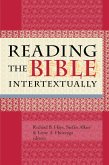To the modern ear, the concept of cursing sounds otherworldly, mystical, abhorrent. For some the idea may evoke images of terror-images not of God but of the devil. How then are Christians to understand the imprecatory psalms, which are violent and, for many, disturbing prayers for judgment that seem to contravene Christ's command to "love thy enemy"?
Drawing together redemptive-historical biblical theology and narrative ethics, Trevor Laurence's Cursing with God assesses the imprecatory psalms and the viability of their performance by the Christian church. Laurence argues that prayerful enactment of the imprecatory psalms is an obligatory exercise of the church's God-given calling as a royal priesthood in God's story. This study evaluates the imprecations within their intertextually constructed narrative world, presenting a biblical theological reading of their petitions as the faithful prayers of the royal-priestly son of God whose vocation is to guard God's temple-kingdom from the forces that would defile it and to subdue the earth as sacred space. Attention to the New Testament's polyvalent interaction with the imprecatory psalms discloses how the New Testament narrates God's work in Christ with reference to the figures and structures of the imprecations.
With the resultant biblical theological synthesis as a narrative framework for ethical reflection, Cursing with God culminates with a proposal for faithful Christian cursing that coheres with the church's royal-priestly vocation and inter-advent location in God's narrative and contends that imprecatory performance has the dynamic capacity to stimulate faith, hope, and love while galvanizing the church to work for a more just world. With scholars, students, and trained clergy in view, Cursing with God aims to generate a recovery of the imprecatory psalms in Christian worship and piety.
Drawing together redemptive-historical biblical theology and narrative ethics, Trevor Laurence's Cursing with God assesses the imprecatory psalms and the viability of their performance by the Christian church. Laurence argues that prayerful enactment of the imprecatory psalms is an obligatory exercise of the church's God-given calling as a royal priesthood in God's story. This study evaluates the imprecations within their intertextually constructed narrative world, presenting a biblical theological reading of their petitions as the faithful prayers of the royal-priestly son of God whose vocation is to guard God's temple-kingdom from the forces that would defile it and to subdue the earth as sacred space. Attention to the New Testament's polyvalent interaction with the imprecatory psalms discloses how the New Testament narrates God's work in Christ with reference to the figures and structures of the imprecations.
With the resultant biblical theological synthesis as a narrative framework for ethical reflection, Cursing with God culminates with a proposal for faithful Christian cursing that coheres with the church's royal-priestly vocation and inter-advent location in God's narrative and contends that imprecatory performance has the dynamic capacity to stimulate faith, hope, and love while galvanizing the church to work for a more just world. With scholars, students, and trained clergy in view, Cursing with God aims to generate a recovery of the imprecatory psalms in Christian worship and piety.
Dieser Download kann aus rechtlichen Gründen nur mit Rechnungsadresse in A, D ausgeliefert werden.



